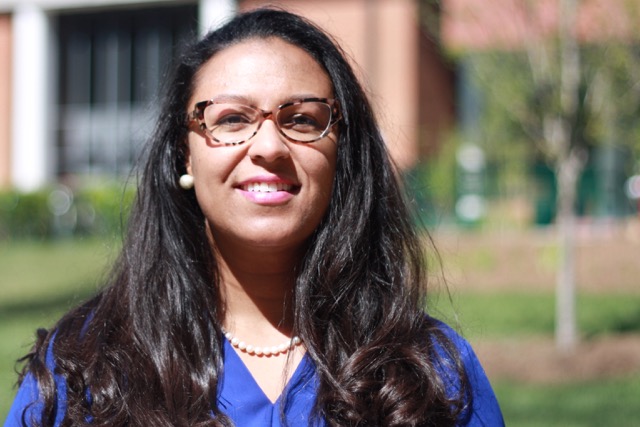Mason Lighting the Way
Spotlights from the Task Force
More than 130 faculty, staff and students are working on George Mason University’s Anti-Racism and Inclusive Excellence Task Force, which is taking a hard look at the current state of diversity and inclusivity efforts at the university and making recommendations for the future.
These individuals come from across our campuses and bring their different skill sets and expertise to this work. In this series, we will spotlight members of the task force and find out what drives them.
Sharrell Hassell-Goodman
Doctoral Student, Higher Education Program
Committee: Co-chair, Student Voice
One of the things Sharrell Hassell-Goodman loves about George Mason University is its diversity. Prior to coming to Mason, Hassell-Goodman studied at Miami University in Ohio, where she earned a bachelor’s degree in early elementary education and two master’s degrees, an MEd in education leadership and MS in college student personnel.
Mason’s diverse student body was a welcome change for her.
“I loved seeing so many Black and brown faces,” she said.
She also worked on the student services side of universities, including a stint as director of sorority and fraternity life at Ohio State.
Now Hassell-Goodman is working on a PhD in higher education with a specialization in women and gender studies and social justice, and enjoys working on the academic side of Mason. She has taught courses in the School of Integrative Studies on identity, social justice, and social science research.
As a first-generation college student herself and one of the founders of the Black Graduate Student Association at Mason, she understands the importance of supporting students and has focused some of her research on first-generation students. Her research interests also include Black women in higher education, social justice advocates in higher education, identity and leadership, and critical participatory action research.
“I really wanted to look at the experiences of those who are historically marginalized,” said Hassell-Goodman.
For her dissertation research, Hassell-Goodman has been inspired in part by a group of Black women in academia, a movement that is often called #Blackintheivory in social media. In fact, she has her own “research collective.”
“It was students and alumni talking about their experiences in the academy, and then the world shifted,” Hassell-Goodman said of how George Floyd’s death changed the conversation. “[Then] Black women, who identify as first-generation college students, from across the country were interested in being a part of this research collective.”
The stories and experiences of these women are informing Hassell-Goodman’s research. Her dissertation is titled “An Endarkened Feminist Critical Participatory Action Research Project: First-Generation Women of the African Diaspora.”
As co-chair of the Student Voice Committee of the Anti-Racism and Inclusive Excellence Task Force, Hassell-Goodman had the opportunity to present at both town halls and bring forward recommendations from the committee that included adding anti-racism to the university’s research agenda, more courses on anti-racism and inclusion topics, and faculty training to create more inclusive classrooms.
“The students on this committee represent many different demographics, but all want to interrupt all forms of oppression,” she said. “I am so impressed with these students and how committed they are.”
She also feels this task force provides a great opportunity. Not only have all the student committee members learned more about how a university works, they are involved in this process at an optimal time.
“We are at a place where we are creating action,” she said. “Students are so central to this process, and Mason is thinking of students first.”

